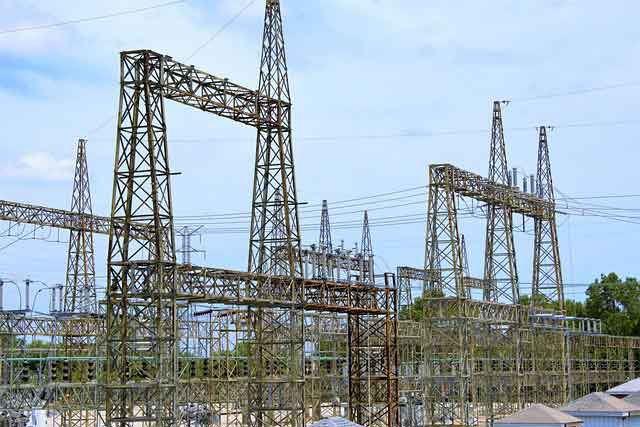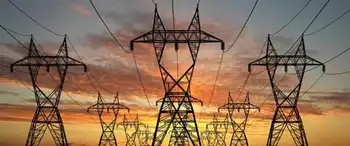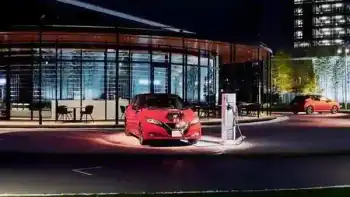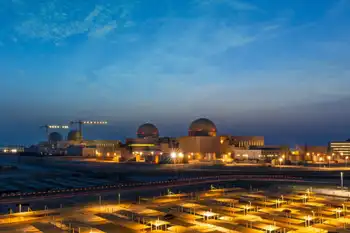W.Va. loses out on FutureGen project: No emissions coal plant prototype will be built in Illinois or Texas
WEST VIRGINIA - West Virginia will not be the home of a $1 billion coal-burning power plant prototype called FutureGen, developers of the plant announced recently.
The state had offered 387 acres in Mason County, just north of Point Pleasant, for the project. West Virginia was among seven states proposing 12 different sites for the home of FutureGen, called the world's first zero-emissions, coal-fueled power plant. Four of the 12 sites, including the one in Mason County and one in Meigs County, Ohio, were eliminated from consideration because they did not meet the basic criteria, according to a 76-page evaluation report released by FutureGen.
The Mason County site is bisected by W.Va. 62 and a CSX railroad line, and is not 200 contiguous acres as needed, the evaluation stated. It is also too close to a state park, as well as Ohio River Islands National Wildlife Refuge and the Racine Locks and Dam, according to the evaluation. The four finalists for the plant were sites in Mattoon and Tuscola, Ill., and Odessa and Jewett, Texas. After the announcement, West Virginia officials said they remained optimistic about the future of coal technology in the state.
"While we are disappointed that we did not make the lists of sites for final consideration for this project, we are hopeful that the FutureGen initiative will yield new technology that will enhance the future of West Virginia's power generation and coal industries," Gov. Joe Manchin said in a prepared statement. Rep. Shelley Moore Capito, R-W.Va., agreed. "I strongly believe that our state's infrastructure, accessible and able work force and possession of the finest coal reserves in the country would have made West Virginia an ideal location for this plant," she said in a prepared statement.
"I remain very optimistic about West Virginia's potential." Manchin has directed Paul Hardesty, chairman of the Public Energy Authority, and Pat Esposito, the governor's energy adviser, to explore technologies that advance cleaner burning of fossil fuels, said Kelly Bragg, community development specialist with the West Virginia Development Office.
Lessons learned from FutureGen will be used in these efforts, she said. "West Virginia will continue to work with providers and potential investors to move coal technology forward," she said. The FutureGen Alliance, which represents 10 coal and electric utilities companies worldwide, is working with the Department of Energy to develop the $1 billion project. So far, the alliance has committed $250 million toward the project. There was a "tremendous turnout" for the proposed power plant, Jeff Jarrett, assistant secretary of fossil energy for the Department of Energy, said during a recent news conference at the National Press Club.
"There were actually people vying to have a power plant built in their back yard," said. States offered millions of dollars in incentives to help lure the plant. Illinois put up $80 million in grants and low-interest loans. Texas put up $20 million for infrastructure or development, and passed a law making the state responsible for any legal problems stemming from the plant's carbon- dioxide emissions. The 12 proposed sites were judged on 100 different criteria, said Mike Mudd, FutureGen's chief executive officer. After the announcement, each state was given a debriefing on why its site wasn't chosen, he said.
Just because FutureGen didn't pick a site doesn't mean it's not suitable for a power plant, he said. "Clearly, there will be opportunities with many of the sites" that weren't chosen, he said. Because of the tight planning and building schedule, there is no appeal process for the sites not chosen, he said. The site for the FutureGen plant is to be selected in September 2007, and the plant is supposed to go online in 2012.
Related News

Canada Finalizes Clean Electricity Regulations for 2050
TORONTO - Canada's final Clean Electricity Regulations, unveiled in December 2024, represent a critical step toward ensuring a sustainable and reliable energy future. With electricity demand set to rise as the country’s population and economy grow, the Canadian government has put forward a robust plan that balances climate goals with the need for reliable, affordable power.
The regulations are designed to reduce greenhouse gas emissions from the electricity sector, which is already one of Canada's cleanest, with 85% of its electricity sourced from renewable energies like hydro, wind, and solar. The target is to achieve net-zero emissions in electricity generation…




